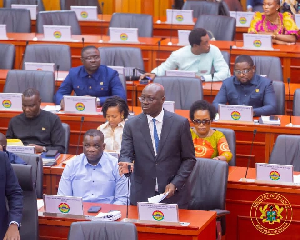Accra, May 2, GNA - Dr Audrey Forson, a Respiratologist of the Korle Bu Teaching Hospital, on Tuesday called for Government's commitment to provide infrastructure and implement policies that would benefit asthma patients.
She said with continued urbanization and increasing westernization of lifestyle the burden of asthma in Ghana would continue to increase considerably in the coming decade.
Dr Forson, who was speaking at a press conference organized by the Ghana Asthma Society (GAS) to mark the World Asthma Day, asked the Government to empower asthmatic patients to purchase essential drugs by including them on the country's Essential Drug List. She called for the "education and training of health professionals for early diagnosis and improved care, and the acceptance of uniform treatment guidelines for use at the first point of entering the health care system".
She also stressed the need to educate the patients or their parents and the public on the effective long-term management of asthma. A survey carried out in 2005 on the prevalence rate of asthma cases in Ghana revealed that one out of every 11 pupils, representing nine per cent, in the country's basic schools was asthmatic, as against one out of every 45 in 2000.
This registered a more than 400 per cent rise in the incidence within the period. A similar trend is also being noticed in the adult population who seek treatment in national hospitals.
The survey also estimated that there might be an additional 100 million persons with asthma by 2025.
Dr Forson, who is also the Acting Chairman of the Society, said the incidence was also noted to be higher in the cities than in the rural communities due to environmental pollution and the use of items such as air conditioners, woollen carpets, aluminium frames as windows and emissions of carbon from vehicles.
She said it was estimated that asthma accounted for about one in every 250 deaths worldwide and around 300 million people of all ages suffered from asthma worldwide increasing the burden of the disease to governments, health care systems, families and patients.
Mr Ephraim Sowah, Secretary of GAS, said the society was established about 20 years ago to create awareness on the need to help asthmatic patients and the public to manage and treat asthma patients. He said as a society their main objective was to try and reduce the suffering of asthmatic patients through intensive education. Prizes were given to six people, who took part in a National Essay Competition on asthma organized by AstraZeneca, an international pharmaceutical company for school children in the first and second cycle schools. 2 May 06
Health News of Tuesday, 2 May 2006
Source: GNA
World Asthma Day observed













